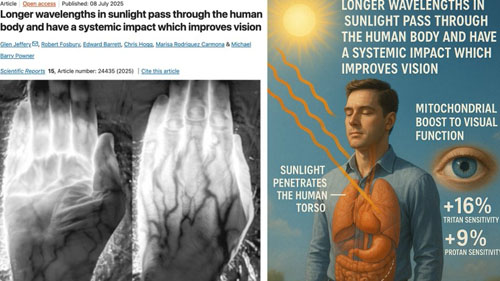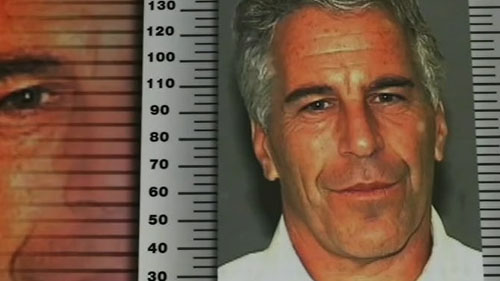| Recent Featured Videos and Articles | Eastern “Orthodoxy” Refuted | How To Avoid Sin | The Antichrist Identified! | What Fake Christians Get Wrong About Ephesians | Why So Many Can't Believe | “Magicians” Prove A Spiritual World Exists | Amazing Evidence For God | News Links |
| Vatican II “Catholic” Church Exposed | Steps To Convert | Outside The Church There Is No Salvation | E-Exchanges | The Holy Rosary | Padre Pio | Traditional Catholic Issues And Groups | Help Save Souls: Donate |  |









 " />
" /> " />
" /> " />
" /> " />
" /> " />
" />




St. Alphonsus' Quote on Trent and Regeneration Shows Why 'Baptism of Desire' Advocates Have Nowhere To Go
Bro. Peter Dimond
I wanted to share an interesting quote from St. Alphonsus. It’s relevant to the argument explained in our article and video, The Best Argument Against ‘Baptism of Desire’. That argument (among others) totally refutes ‘baptism of desire’. The passage we will consider from St. Alphonsus further demonstrates that supporters of ‘baptism of desire’ are unable to mount any cogent response to the argument set forth in that article. Whatever they attempt to say in response only yields more errors and contradictions on their part. As the points covered show, ‘baptism of desire’ is demonstrably false because 1) it does not (according to St. Alphonsus, St. Thomas, and modern theologians who favored it) take away the temporal punishment due to sin and leave a person in a reborn state in which he or she would go straight to Heaven without the delay of Purgatory; but 2) it’s a defined dogma that to be justified one must receive regeneration (i.e. the grace of baptism), which necessarily removes the temporal punishment due to sin and leaves a person in a state in which he or she would go straight to Heaven without the delay of Purgatory (de fide definita). This is an insuperable problem for supporters of BOD.
Simply put: one must be born again to be justified, but ‘baptism of desire’ does not result in being ‘born again’, according to those who taught the man-made myth. For example, St. Thomas and St. Alphonsus explained ‘baptism of desire’ in the following way:
One could quote numerous other modern theologians who explained ‘baptism of desire’ in a similar way. It is therefore a false doctrine.
NISH’S ARGUMENT DESTROYED
Recognizing the force of this argument, in an attempt to salvage the clearly erroneous teaching of St. Thomas, St. Alphonsus, etc. on the matter, one obstinate supporter of BOD whom we will call ‘Nish’ tried to find a way around the argument. As we will see, he failed miserably. He argued that when Trent defined: “For, in those who are born again there is… absolutely nothing that may delay them from entry into Heaven” (which means that all of their temporal punishment due to sin has been taken away and they won’t have to suffer in Purgatory if they die in that state), that supposedly does not refer to everyone who has been born again, even though it says “in those who are born again”! Here is his argument:
According to him, Trent’s definition on those who are ‘born again’ only refers to those who have been born again in water baptism, because baptism is mentioned in the section. (Of course our position is that the only people who have been ‘born again’ are people who have been baptized, but we are discussing Trent’s teaching on the grace of ‘rebirth’ or being ‘born again’ as such.) According to his argument, if you are ‘born again’ in water baptism, you get everything forgiven and you are fit to go straight to Heaven; but if you are ‘born again’ through the so-called ‘baptism of desire’, you do not receive the forgiveness of the temporal punishment due to sins, and you might have to suffer in Purgatory for past sins.
Some who aren’t very familiar with these issues might wonder: how is his explanation any different from the standard explanation of BOD (i.e. 'baptism of desire')? The answer is that he’s admitting that BOD does not take away the temporal punishment due to sin and that its recipient might still have to suffer for past sins in Purgatory, BUT HE’S STILL TRYING TO CALL THAT SITUATION BEING ‘BORN AGAIN’, since he knows that one must be ‘born again’ to be justified.
So, according to him, Trent’s decree that those who are ‘born again’ are left in a state in which they would go straight to Heaven only refers to those ‘born again’ in water baptism, and not to all those ‘born again’ as such (and specifically not to his imagined subset of the ‘born again’ who supposedly receive ‘baptism of desire’).
Now, his desperate explanation is patently false for several reasons. First, it supposes that one can be ‘born again’ and not be a totally new man and a new creation. That is of course nonsense. It contradicts the very dogmatic and scriptural signification of the term ‘born again’, as well as the plain teaching of Scripture and Magisterial pronouncements on the ‘new creation’. One cannot be a ‘new creation’ without having everything forgiven (i.e. all the guilt of sin and the temporal punishment due to sin).
Notice that “if anyone” (εἴ τις) is in Christ, the old has passed away. That’s the teaching of the Gospel. If someone must still suffer for sins committed in the past by the old man, the old man has not passed away and the person is not a new creation. He cannot be in Christ, since he does not have the true first justification that Christ provides: a removal of all sin and the temporal punishment due to sin through regeneration.
Thus, the argument that Nish (or rather the Devil) has concocted on this matter (that one can receive the grace of regeneration and still be liable for sins committed before that 'new birth') contradicts the Gospel.
Second, the explanation still posits that ‘baptism of desire’ does not confer the grace of the Sacrament of Baptism, for the grace of the Sacrament is dogmatically defined to remove the temporal punishment due to sin.
That proves that ‘baptism of desire’ is not baptism in any way, since it does not contain the sign, the character or the grace of the ‘one baptism’ that all must have. It is therefore false.
Third, Nish's explanation contradicts the direct meaning of Trent’s solemn definition on those ‘born again’, as anyone who reads Trent's passage (which is quoted in full below) can see.
Fourth, St. Alphonsus obliterates it. This brings me to the quote I want to share, which happens to pertain to this discussion with remarkable specificity. In his book on the decrees of the Council of Trent, St. Alphonsus made an interesting comment about the passage in the Council of Trent that we are discussing. First, here's the passage from Trent again in full:
TRENT'S DOGMATIC PASSAGE
Now here's what St. Alphonsus says about this dogmatic definition:
Notice, St. Alphonsus says that in this dogmatic definition, the words “in renatis” (in those born again) were deliberately chosen, and not the words “in baptizatis” (in those baptized), because it’s possible for someone to be validly baptized (e.g. a heretic) and not be born again. St. Alphonsus thus admits that the dogmatic definition quoted above was about the state of being 'born again to grace' as such. An attentive reader should see why this quote from St. Alphonsus directly refutes (and in fact destroys) the made-up argument from the heretical fool Nish (since he relies on St. Alphonsus).
Now, St. Alphonsus was not infallible. In fact, his quote here actually serves to further confirm, in striking fashion, that his explanation of ‘baptism of desire’ was false. It’s also true that what matters in a dogmatic decree is what the decree states, not the discussions that occurred prior to its promulgation. What God protects is what He allows to be promulgated. However, the heretic whom we've been refuting said that the passage in Trent does not refer to the state of being ‘born again’ as such, but only to those ‘baptized’, whereas St. Alphonsus (whom he pretends to defend and rely on) teaches precisely the opposite! Further, the heretic said that to consider Trent's passage as referring to those ‘born again’ as such is to ‘wrest’ the passage, even though St. Alphonsus says that the passage refers specifically to the condition of those ‘born again’. It is remarkable how God allows heretics to fall into the pit and be refuted by their own sources, authorities, and arguments.
As anyone can see, the words of the dogmatic definition (and the admission of St. Alphonsus about it) show that the grace of being fit to enter Heaven without delay is necessarily the possession of ‘those who are born again’ (in renatis) as such, and not just the possession of some imagined subset of the reborn who are baptized (even though in reality all the reborn are baptized).
It is therefore certain based on Trent's definition (and, as we've seen, St. Alphonsus concurs) that anyone who is ‘born again’ is left in a state in which he would go straight to Heaven if he were to die in that state. Yet, according to the explanation of St. Thomas, St. Alphonsus, and basically all modern theologians who taught it (see above), BOD does not remove the temporal punishment due to sin, and it does not leave a person in a state in which he or she would necessarily go straight to Heaven. Since one must be ‘born again’ and left in a state in which he would go straight to Heaven in order to even be first justified (see above), that proves that BOD, as explained by the aforementioned individuals, is CERTAINLY FALSE. It must be rejected. Those who obstinately adhere to it or teach it, in the face of these facts, commit grave sin and deny Catholic dogma. A Catholic is not permitted to promote opinions of saints or theologians when they contradict dogmatic teaching.
St. Alphonsus simply did not see how his admission about Trent's definition on those who are ‘born again’ refutes his explanation of 'baptism of desire'. All of this illustrates, once again, why Catholics ultimately form their positions from Magisterial pronouncements, not the fallible opinions of saints and theologians. God protects the Chair of St. Peter and all the acts of the Magisterium. The teaching of saints and theologians do not have that guarantee.
These points demonstrate once again that ‘baptism of desire’ is an utterly false man-made doctrine. Those who obstinately defend it, in the face of the dogmatic arguments we make available, are simply bad-willed and dishonest. They promote heresy and depart from Catholic truth.
Before closing this article with some important facts about Romans 6 in light of Trent’s decree, I should probably add that the aforementioned heretic, ever desperate to resist Catholic teaching on this matter, also brought up the following canon from Trent’s decree on Justification. This was another attempt on his part to refute the Church’s teaching that regeneration necessarily removes the temporal punishment due to sin.
He thinks that this canon contradicts the position that regeneration necessarily removes the temporal punishment due to sin. His conclusion is, of course, totally fallacious. In fact, someone who makes such a ridiculous argument demonstrates that he has no business commenting on these matters, for he cannot even read a dogmatic canon with comprehension.
The canon refers to the grace of justification given “to every repentant sinner” (and thus it encompasses all receptions of the grace of justification, both in Baptism and in Penance). It is indeed false and heretical to say that “every repentant sinner” who is justified necessarily has the temporal punishment due to sin taken away, because multitudes throughout history have been justified in confession (after baptism) without having the temporal punishment due to sin remitted. That of course has nothing to do with the defined truth that regeneration or the first justification necessarily results in a new creation, as Trent teaches. Regeneration does remove all the temporal punishment due to sin and leave a person in a state in which he or she would go straight to Heaven, as Trent clearly defined.
It’s astounding how the Devil influences people to pervert the teaching of the Church in a miserable attempt to defend their false positions.
“BAPTISM INTO CHRIST”, ROMANS 6:3-4, AND TRENT’S DOGMATIC CANON FURTHER REFUTE BOD
It’s also important to recognize that the passage from Trent we’ve been discussing bases its dogmatic definition on Romans 6:3-4. Trent’s paragraph is a dogmatic definition specifically about St. Paul’s teaching in Romans 6 and those “baptized into Christ Jesus”. According to Trent, the recipients of the grace of rebirth are left in a state in which they would go straight to Heaven precisely because “there is no condemnation to those buried together with Christ by baptism into death” (Romans 6:4).
Trent dogmatically defines the meaning of Romans 6:3-4. According to Trent, all of those “buried with Him [Christ] by baptism into death” (Romans 6:4) are left in a state in which nothing would delay them from entering Heaven. Well, according to Romans 6:3, “all of us who have been baptized into Christ Jesus” receive that grace. So, according to St. Paul and the Council of Trent, a total removal of all the guilt of sin and the temporal punishment due to sin is inextricably connected to “baptism into Christ Jesus” and being “buried with Him by baptism into death”. Do you see what this means for adherents of ‘baptism of desire’? It means that to defend their false position and the erroneous explanation of St. Thomas, St. Alphonsus, etc., they must admit that receiving ‘baptism of desire’ does not even constitute “baptism into Christ Jesus”, because it’s de fide definita that “baptism into Christ Jesus” (Romans 6:3) leaves a person in a state in which he would go straight to Heaven and ‘baptism of desire’ doesn’t provide that grace.
So, they are defending a so-called ‘baptism’ that lacks 1) the sign of baptism, 2) the indelible mark of baptism, 3) the grace of baptism, and 4) it is not even ‘baptism into Christ Jesus’! How is it in any way ‘baptism’? The answer is, of course, it’s not. It’s an utterly false, man-made doctrine that contradicts the teaching of Scripture and the Catholic Church on what constitutes the grace of ‘baptism into Christ Jesus’ and much more.
With these points about the “baptism into Christ Jesus” (Romans 6:3) in mind, please re-consider the Council of Vienne’s dogmatic definition.
Notice that Vienne declares that there is only one baptism “regenerating” (regenerans) “all who are baptized in Christ” (baptizatos omnes in Christo). This one baptism, which all must confess, is celebrated in water. So, all who are “baptized in Christ” are regenerated, but ‘baptism of desire’ does not regenerate. This further demonstrates that ‘baptism of desire’ cannot be “baptism into Christ”.
Sign up for our free e-mail list to see future vaticancatholic.com videos and articles.
Recent Content
^